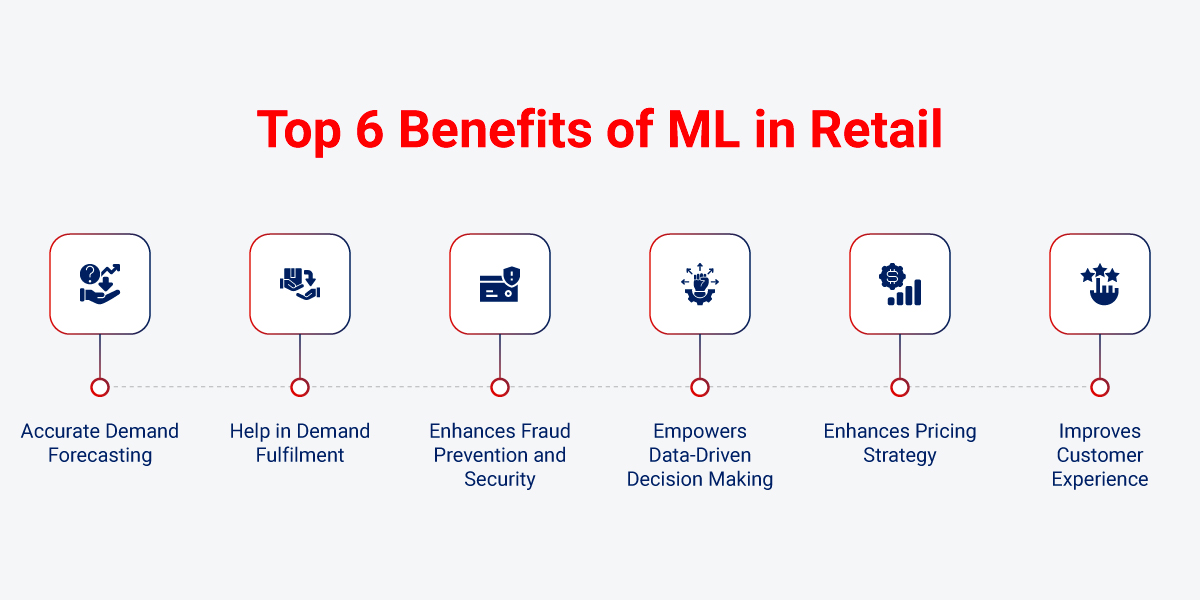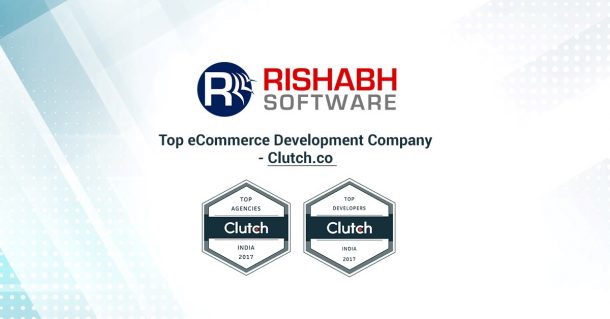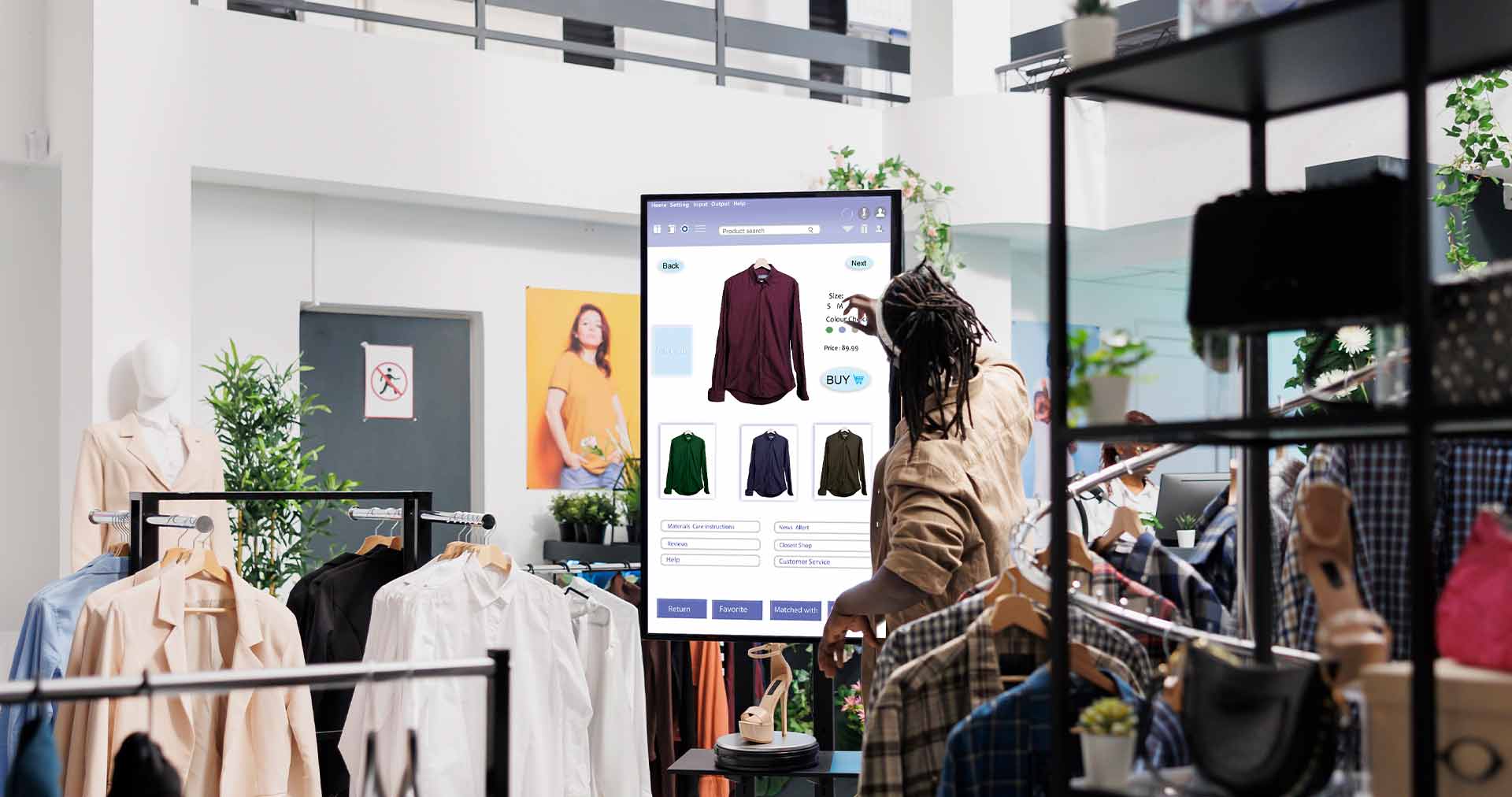Machine Learning (ML) has greatly benefited the retail industry by enabling companies to improve their bottom line. This is made possible by the generated data that helps unlock the opportunities to anticipate, adapt, and meet constantly changing customer demands.
A typical machine learning model breaks large volumes of complex data into actionable insights with a better understanding of customer behavior and market trends. By leveraging these insights, an organization can estimate future demand, decide on competitive pricing and even personalize offerings for customers.
Through this article, we’ll discuss the various ways in which an organization can use machine learning technology to keep its retail business ahead of market competition by exploring the use cases & best practices.
Why Do Retailers Need AI and Machine Learning to Move Forward
The retail industry is undergoing a continuous evolution on every front – customers are constantly changing their purchase patterns, and the market is moving toward becoming a complex ecosystem. The emerging technologies are disrupting the sector at a stunning pace. Meanwhile, shoppers are being bombarded with luring offers that compete for their attention on every channel, from online (web to mobile apps) to in-store.
By combining Machine Learning with marketing efforts, organizations can make the best use of their consumer data. AI functionalities like computer vision, visual search & NLP are proving to be game-changers by improving optimization & forecasting for retailers.
Companies that are reluctant to implement this data-driven technology will severely lag in terms of KPIs. Those that are early to adopt will leapfrog ahead, regardless of their existing position. It makes perfect sense to actively catch up on this trend with a trusted technology partner like us.
Thus, machine learning is not just a secret sauce for spicing up the retail business’s future but a magnificent element to take charge and eliminate modern hurdles and struggling aspects. For example, retail businesses at large scale struggle with inefficiencies in inventory management, fluctuating customer demands, supply chain disruptions, pricing optimization, and fraud detection. With advancements in machine learning, retail businesses can tackle these issues confidently by leveraging data-driven insights, from demand forecasting to price optimization strategies and connected supply chain processes.
Machine Learning Use Cases in Retail
Analyzing and then integrating machine learning solutions into retail processes delivers the desired value, making businesses more focused on sustainability, customer experience, and sales. Here are some use cases that highlight the effective application of ML models in retail operations:

- Demand Prediction: Retail businesses fall under the segmented verticals that function based on market demands and future scenarios. Using historical data, ML models enable accurate predictions of future trends, market patterns, and customer demand to guide associated processes efficiently. Demand forecasting solutions or planning applications built on ML-based capabilities leverage counterfactual reasoning, and machine learning models in retail produce robust demand forecasts, including scenario planning and sensitivity analyses of internal and external data sources.
- Inventory Management: A new era of integrated inventory management is emerging as an essential need for retail businesses, spanning physical stores, online platforms, and hybrid models. AI and machine learning for retail businesses revolutionize the process by enabling optimal inventory control, from automated management to addressing hidden challenges throughout the inventory cycle for a more streamlined workflow. Unlike conventional inventory management software, which often has limitations, machine learning leverages advanced algorithms and techniques to analyze large volumes of data. This capability ensures that products are available when and where they are needed, transforming inventory management into a highly efficient and intelligent process.
- Logistics & Supply Chain: Direct integration and adoption of machine learning-based solutions in retail logistics and supply chain operations allow businesses to perform intelligent analytics on large volumes of unstructured data. These insights can be utilized to strengthen route planning, automate route optimization, and significantly reduce expenses.
- Chatbot and Virtual Assistants: Chatbots, driven by Natural Language Processing and Machine Learning, serve as interactive retail assistants, offering 24/7 support for various tasks. They notify users about new collections, help them find desired products, suggest similar items, and more. These versatile virtual assistants are deployed on brand websites and social media platforms to increase sales and enhance CX.
- Fraud Detection: Machine learning and AI can detect and prevent credit card fraud in online and in-person transactions using autonomous learning. They can also block fraudulent activities, such as coupon fraud, by monitoring user behavior associated with specific IP addresses.
- Personalized Marketing: Machine learning has evolved from being a nice-to-have feature to an indispensable necessity in modern retail. It plays a pivotal role in shaping marketing strategies that ensure customers feel valued, heard, and satisfied with both products and services. ML algorithms analyze content types, keywords, and phrases that capture audience attention and determine the effectiveness of advertising campaigns. Techniques like regression analysis are employed to evaluate page performance and campaign success, identifying factors that drive higher conversions and increased clicks. Clustering algorithms can be utilized for further segmentation of customer behavior and preferences to enable more targeted and impactful marketing efforts that lead to achieving goals. These data-driven approaches not only enhance customer engagement but also maximizes the return on investment for marketing initiatives.
Benefits of Machine Learning in Retail
From route optimization to efficient inventory management, performance tracking of products, customer engagement, satisfaction, and warehouse operations, retail unified processes revolve around data these days. Machine learning in the retail industry empowers businesses to reimagine their processes, redefine their vision, and undoubtedly set the right path to achieving such goals. Let’s explore the key benefits that machine learning brings to retail businesses.

- Accurate Demand Forecasting: Machine learning models empower retailers to make more precise predictions by analyzing historical customer demand data and forecasting future demands, seasonal trends, and external factors. Techniques like time series analysis (e.g., ARIMA and Prophet) identify seasonal patterns, while regression and advanced ML algorithms (e.g., Random Forest and Neural Networks) capture complex relationships and adapt to market dynamics.
- Help in Demand Fulfillment: Machine learning capabilities in retail allow businesses to take one step forward in ensuring that the right products are available at the right time and place. Better optimizing inventory levels and reducing stockouts or overstocking helps retailers to accomplish their selling target while building the right reputation amongst customer churns.
- Enhances Fraud Prevention and Security: The prevalence of online shopping and e-commerce website usage, while offering numerous benefits, has also led to an increase in fraudulent activities. To challenge fraudulent strategies, adopting advanced machine learning-based solutions in retail proves invaluable. From proactive detection to restrictive authorization access and responsive actions against fraud, ML is effective from all angles. Techniques such as Isolation Forest, One-Class SVM, and Autoencoders identify unusual patterns, while real-time data analysis facilitates the immediate detection of suspicious activities. Additionally, behavioral analytics, including transaction history, login patterns, and device usage, provide deeper insights to combat fraud effectively.
- Empowers Data-Driven Decision Making: Machine learning is widely known for processing large datasets to uncover valuable insights into various aspects of retail operations. This enables retailers to make their world entirely data-driven, which leads to more informed and analyzed decisions than ever before across various operations, including supply chain management, marketing strategies, and logistics.
- Enhances Pricing Strategy: One of the key benefits of ML in the retail industry is its ability to improve the overall pricing strategy of retail businesses. The days of fixed rates are long gone; now, adjusting prices based on demand is the new reality. Machine learning capabilities in retail have changed the game by enabling result-driven dynamic pricing strategies. These strategies are based on analyzing the current market structure, real-time customer data, competitor pricing strategies, and more. Making the best decisions on product pricing and changing it in response to consumer demands is challenging. For most sellers, seasonal trends, peaks in demand, and competitor’s pricing patterns are given priority in decision-making. However, many other factors can impact the price. Using Artificial Intelligence in the retail industry can help you identify the right time to reduce or push prices higher.
- Improves Customer Experience: Personalized product recommendations, targeted promotions, and efficient customer service powered by ML help retailers deliver a seamless and engaging shopping experience, fostering customer loyalty.
Common Challenges in Adopting Machine Learning in Retail Industry
Leveraging capabilities and gaining benefits from machine learning undoubtedly offers significant potential, but implementing it in the right manner can be a challenging task. Some obstacles may arise when implementing machine learning applications in the retail industry. Here, we have listed the key challenges and their solutions—let’s explore them together.
Data Quality:
Machine learning works and derives insights that are completely based on high-quality, refined, clean, and consistent datasets and sources. Unprocessed data with loopholes, such as inaccuracies and incompleteness, hinder the capability of ML-based solutions by offering incorrect insights and leading to poor decision-making.
Solution: Leverage data pipeline services with the right architecture for an efficient end-to-end process, from data collection to processing and cleaning, ensuring data accuracy before it proceeds to machine learning models.
Data Privacy and Security:
For business success and sustainability, machine learning models in retail businesses utilize various critical data, such as customer information for better targeting and conversion, logistics and supply chain data, and more. Developing a strong layer of security and a higher degree of privacy is a necessity.
Solution: Basic security measures include implementing encryption, secure access control, conducting security audits on a timely basis, and staying up to date with privacy regulations.
Fitting Things in Existing Process:
Some retail businesses still rely on outdated legacy systems, applications, and processes. These legacy systems are not designed to work with or depend on machine learning models. There can be compatibility issues, secure data transfer issues, formatting, and many more. Integrating ML models seamlessly into such workflows is a daunting process that takes time and comes with numerous complexities.
Solution: Partner with leading tech experts and conduct assessments of workflows, systems, and applications to gain a better understanding of the current state of legacy digital assets. This helps identify areas where ML integration can be implemented effortlessly. Also, you can consider investing in APIs that act as supporting tools for integrating ML solutions into existing processes.
Scalability:
The collection and handling of large and growing data from a variety of sources of various operations is one of the major limitations of various ML solutions and models.
Solution: Building and utilizing cloud infrastructure for developing machine learning development can provide the needed scalability and flexibility.
MLOps for operationalizing models:
Struggling with the integration of operationalized ML models into retail workflows is a common yet critical challenge encountered by retail businesses. This can be due to multiple factors, such as a lack of necessary technical expertise or the absence of automation tools.
Solutions: Invest in MLOps platforms and tools to streamline the deployment, monitoring, and lifecycle management of ML solutions. Additionally, implement CI/CD pipelines specifically designed for ML workflows to enhance operational efficiency and effectiveness.
Essential Steps to Get Started with Machine Learning for Retail
- Take Time to Make a Clear Strategy: As you decide to go the machine learning way, ensure that you adequately define the business problems you wish to solve. Regardless of whether an organization is looking to enhance its inventory management system, target users with customized content, or make adjustments to its pricing model, strategy guarantees that the ML solutions proposed are consistent with the company’s objectives.
- Invest Heavily in Data Management: Fundamentally, the value of any ML solution that is being implemented depends on the quality of the data. Take a step ahead to invest in procedures to make your data clean, correct, and orderly. This could include data extraction, data transformation, managing the process of data lineage, data profiling, and initiation of data governance such as data masking or data encryption.
- Select the Right Partner or Tools: Select the right tools or platform for the use case you have decided or go for the selection of an out-of-the-box SI solution or a technology vendor, confirm they have experience in the use of retail applications of ML with all required expertise.
- Test and Validate: Model validation is essential as you want to verify that your models are accurate and functioning in a predefined way. Take a set of models, let it work on the historical data, and then evaluate the accuracy of the result. This is a tested model process to ensure that it will work in the real sense.
- Integrate into Retail Operations: Once validated, roll out the different ML models into your retail operations strategies. Whether implemented for demand forecasting, customer segmentation, or inventory optimization, end-to-end integration with existing systems will help to ensure that the models will be able to deliver value in real time.
- Monitor and Improve Over Time: Machine learning models need to be threaded constantly and improved constantly. Whenever you have newly made models, assess how they are functioning and whether you have to change the method to match the latest trends and customer behavior patterns. It will, therefore, provide long-term success and sustainability for the retail business
Why Choose Us for Developing Machine Learning Retail Solutions
Our retail software development specialists can work as an extension of your team to develop custom apps that help meet the changing customer needs, adapt to market challenges & generate measurable results for your business.
We leverage our expertise in machine learning and AI development services to provide custom retail solutions that drive revenue growth and deliver significant ROI. Our deep retail industry knowledge enables us to develop targeted solutions that address real-world challenges faced by retailers daily, from inventory optimization to personalized customer experiences. Our developers are skilled in the latest machine learning algorithms, data analytics, and AI-driven optimization techniques specifically tailored for retail applications.
Frequently Asked Questions
Q: What are the future trends in machine learning for the retail industry?
A: ML continues to revolutionize the retail landscape. It has the massive potential to transform retail from scratch and build a stronger foundation than ever. Key emerging trends include:
- Hyper-personalization shopping experience using advanced ML algorithms
- Enhanced Visual Search and Augmented Reality (AR) for immersive shopping
- Real-time predictive Analytics for dynamic decision-making
- Voice Commerce and Conversational AI for seamless interactions
- Autonomous stores powered by computer vision and ML
- Retail automation with smart robotics for inventory and fulfillment
- IoT integration with ML for smart shelf management and real-time monitoring
- Generative AI applications for product descriptions and customer support
- Advanced demand forecasting with machine learning
- ML-powered dynamic pricing optimization
Q: What are some successful real-world examples of ML in retail?
A: Here is the list of giant retail companies that successfully implement machine learning ability in their day-to-day operations:
- Amazon’s Personalized Recommendations
- Walmart’s Inventory Management Solutions
- Sephora’s Virtual Assistant
- Zara’s Trend Forecasting
Q: Is AI/ML suitable for small to medium retail businesses?
A: Yes, AI/ML is undoubtedly a great asset for small to medium retail businesses. AI/ML solutions help SMBs streamline various operations, from enhancing customer experience with personalized services to accurate demand forecasting based on multiple factors, ensuring better inventory management and optimization, fraud detection, and much more.








